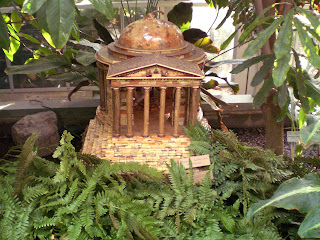I'm still reading
Mirror, Mirror on the Wall, a collection of women writers' responses to fairy tales.
In the introduction, the Kate Bernheimer makes a much-needed defense of writers who work in less-respected genres, like children's literature, young adult literature, fantasy, mystery, and sci-fi. She says that not only "literary" like Margaret Atwood or A. S. Byatt writers deserve respect, but also the likes of Robin McKinley, Jane Yolen, Neil Gaiman...She points out many of the original transcribers of fairy tales were women working in the French courts to collect the derisively named "old wives' tales."
Bernheimer says:
Highbrow readers quick to dismiss these tales because of genre labels might consider that these writers are also following in the footsteps of the salon writers of Paris, working subversively in fields often dismissed by the literary establishment, and staking out territory in books that have wide appeal. These authors often acknowledge their debt to a range of influences from Madame D’Aulnoy to Angela Carter.
I feel that this is an important point to make, because in current literary culture there often a deep divide between "good books" and "good reads." The books that continually win the Booker Prize, the Pulitzer, the Snerdly McSnoggall Prize for Great Literature are often horribly depressing, leaden reads that I occasionally force myself to read out of some misguided sense of virtue. I don't mean to suggest that all Booker Prize-winning books are dead ends, but that there is a culture which suggests that if a book is depressing and written in a certain style, it must be a heartbreaking work of staggering genius.
Meanwhile, it's books like
Twilight and
Harry Potter which people are apparently dying to read. I know many many people, too, who humbly submit to preferring "escapism" over "literature" - but I can't help feeling that they shouldn't be made to denigrate their own tastes, simply because they enjoy the occasional happy ending or adventurous romp. Perhaps
Harry Potter isn't the most well-crafted book (then again, maybe it is, given its addictive qualities), but it shouldn't be automatically dismissed just because of its genre and popularity. And there are certainly other representatives of its genre that are extremely artful, profound, and yes, beautiful.
The question is: Does the gap between quality and pleasure have to exist? My own opinion is ABSOLUTELY NOT, and I will fight to the death to prove it. The immense pleasure
and edification I get from Shakespeare, Dickens, Austen, Gaskell, John Le Carre, Connie Willis, Dorothy Sayers, and
Doctor Who tell me that it is possible to be intelligent
and fun. Certainly, the writers listed above all contain different mixtures of fun and weight, but the point is that the rip-roaring good yarn can also be excellent, excellent art.
And it's immense fun to trawl through the less exalted genres and find the gems. Much more fun than struggling through
The God of Small Things, I guarantee that.









